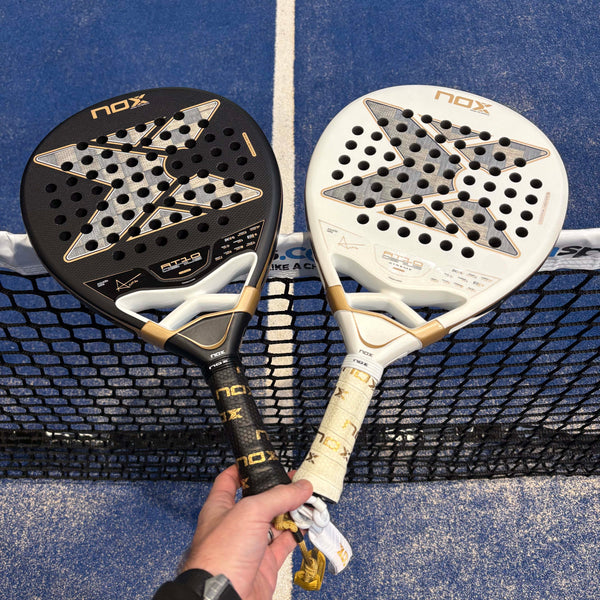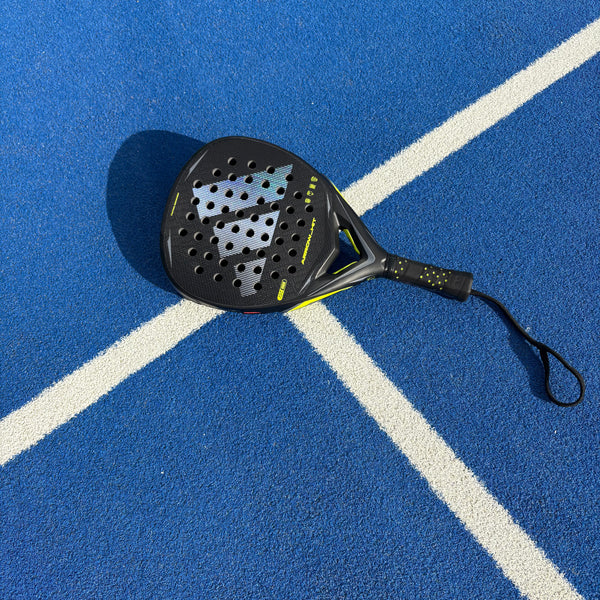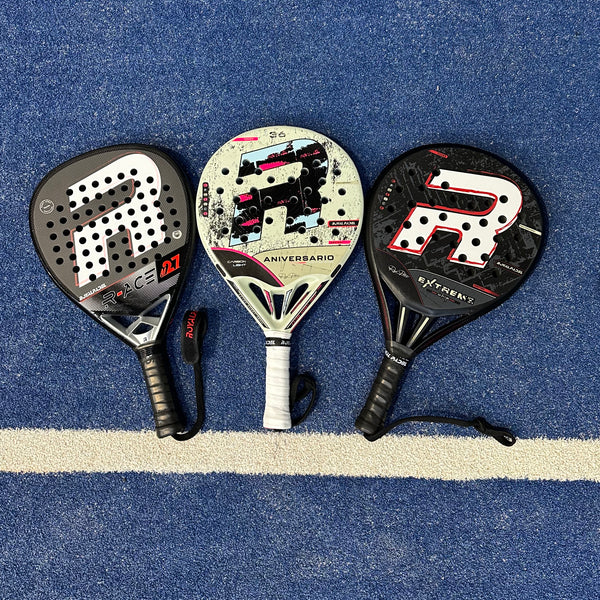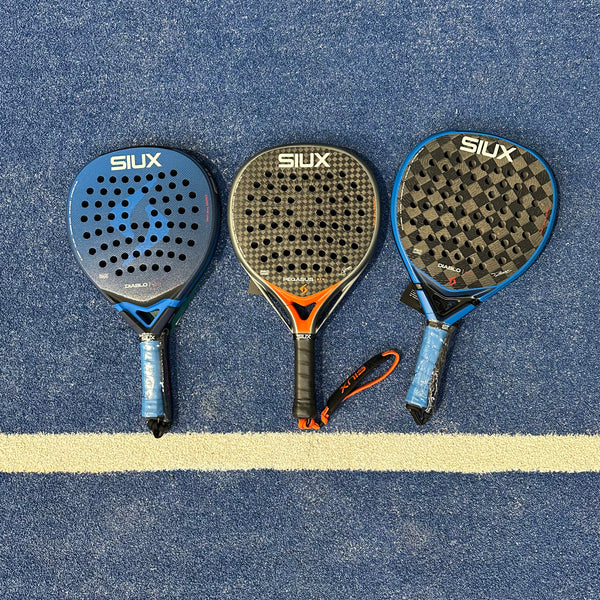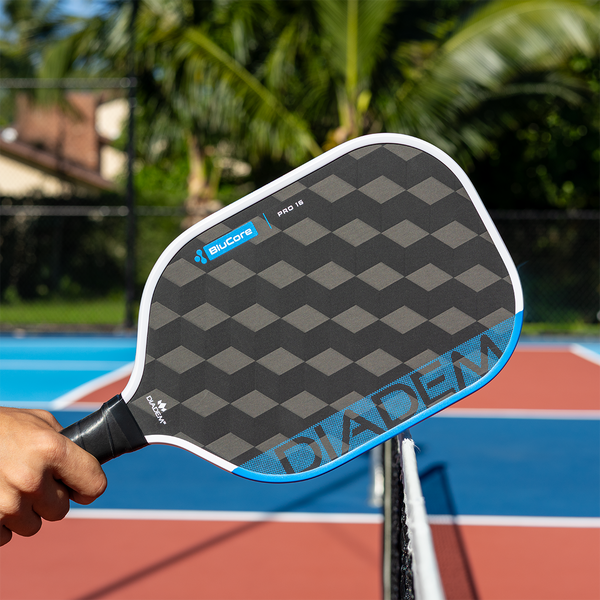Our Guide To Squash Racket Restringing
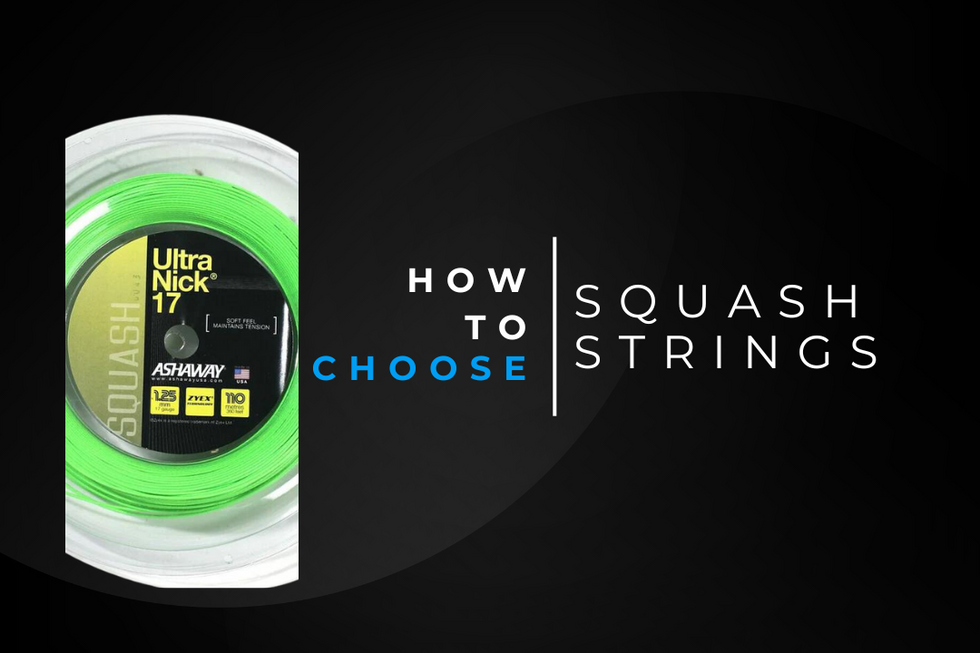
Our guide to squash racket restringing
Racket strings don’t necessarily have to break to need replacing. If you’re playing frequently (three or more times per week) we recommend that you restring your racket at least three times a year to ensure optimum performance as all strings will lose their elasticity and deteriorate with constant use.
Even if you are playing less frequently you should ideally still restring your racket at least a couple of times a year even if the strings have not actually snapped. Once the strings are pulled to tension within a racket they will gradually lose elasticity even if they are not in use. Many players neglect their strings, even though proper stringing can make a huge difference to the way a racket performs.
Here’s our quick guide to squash racket restringing
1. String tension
Every racket comes with a recommended string tension which is sometimes listed on the racket throat.
There is a common misconception when choosing squash racket strings that a higher string tension gives greater power; in fact the reverse is true. A higher or tighter string tension provides less power but increases control. This is because the string works like a trampoline. When the ball hits the racket it ‘catches’ then shoots the ball back out again with greater power.
We restring most rackets at 24-30 lbs.
2. String gauge
Thin strings generally offer better control and feel but do tend to be less durable so can work out more costly to use as more frequent restrings may be required. Thicker strings are more resistant but as they are generally less responsive there is a trade off.
Squash strings generally range from 1.10mm – 1.30mm thickness. Thicker strings are available but these are really designed for tennis or racketball rackets.
3. String construction
There are different types of string:
Natural gut
Natural gut strings have great resilience and offer good control and touch. They do tend to be more commonly used in tennis rackets and can be very costly.
Synthetic strings
Most squash rackets come pre-strung by the manufacturers with synthetic strings and there are several types available i.e. monofilament (one solid piece), multifilament (many pieces intertwined) or nylon.
Most professionals tend to restring all their rackets with the same string and at the same tension. Some will use a thicker gauge for training and a finer gauge for match play.
For example some of the strings/string tensions currently used by leading pro players are:
Nick Matthew – ex World no.2
String: Ashaway Powernick 18 Tension: 28lbs – rackets always strung by his dad.
Mohamed El Shorbagy – current World no.1
String: Tecnifibre Dynamix VP Tension: 26lbs.
Laura Massaro – ex Women’s World no.3
String: RAB sensor fibre Tension: 29lbs “at that tension it gives me a mixture of feel and power that suits me best”.
Laura has a green down section and a yellow cross section (her signature colours, also matching her green and yellow grip).
We always recommend using an experienced, professional stringer with a good quality stringing machine which will calculate tension precisely (We restring all our rackets with an electronic Babolat Sensor machine).
4. Budget
Budget will undoubtedly be a factor for most people. As shown above, prices start from around £15 but can vary significantly.
Finally, it may take some trial and error to find a string tension to suit your game.
Each time you take your racket for restringing keep a record of the string and tension selected so that you can stick with those which help you to perform at your best in future!
